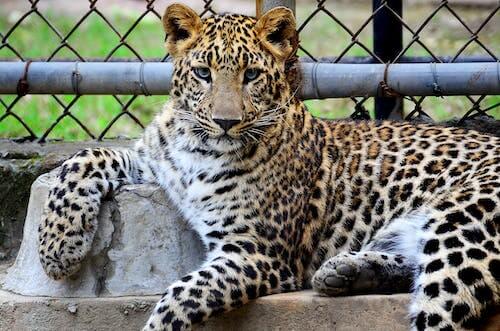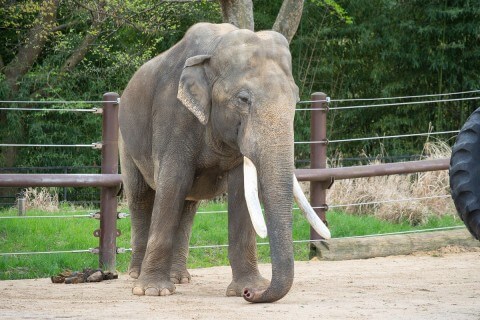Advantages and Disadvantages of Zoos
Zoos are popular in a lot of different nations throughout the world. Visiting a zoo and observing various animals might be enjoyable, especially for children. The argument over whether it is a good idea to offer a natural habitat using artificial settings or confine animals behind borders is ongoing. It is essential to balance a zoo's advantages and disadvantages properly.

Advantages of Zoos
- Different Animals: Viewing various animals in one location is a significant benefit of zoos. You'll likely find whatever rare species you're looking for at one of the many renowned zoos that hold hundreds or thousands of animal species, even those that would never live in your region. Zoos will likely be helpful for you if you're an animal lover and want to view as many animals as you can in a relatively short amount of time.
- It's educational: While enjoying the thrill of seeing live, breathing animals, zoo visitors get a great deal of essential Knowledge. Modern zoos actively work to inform and teach the next generation about the value of conservation & biodiversity by often providing tours and informational booths. Zoos may play a significant role in educating the public about the world's environmental problems to protect our animals as much as possible.
- Global cooperation is encouraged: Additionally, many zoos worldwide collaborate and have agreements, which may imply that they transport animals between zoos if it makes sense. Further, it indicates that such zoos frequently
collaborate on research initiatives and exchange the most recent information on managing animals in zoos as organically as possible. Therefore, zoos may promote international collaboration, which ultimately benefits everyone.
- Protecting Endangered Species: Zoos also have the vital benefit of preventing animal poaching. Since individuals desire to sell the horns or other prized components of such creatures for astronomical prices, many wild animals, in reality, die every year due to poaching. But because of poaching, several species are threatened with extinction or have already done so. To ensure that those creatures have a viable future, we must safeguard them from poachers.
- Economic Boost: Zoos are important tourist destinations for people from nearby and distant locations and serve as a safe refuge for endangered animal species. Therefore, zoos typically serve as a draw for families, field trips for schools, and other groups looking to invest time and money in the area. It supports local companies and the Zoo by generating employment and business opportunities.
- Veterinary Care: All animals at zoos often have access to care and medical treatments on-site. Veterinarians are there to help them right away if they need anything medical. Because their own life and the existence of their progeny are crucial, this is especially vital for some of the rarest organisms in the world. In addition to offering breeding programs, animals can undergo routine inspections for parasites, viral diseases, and cancer.
- Useful for researchers: Zoos may also play an essential part for researchers.
In reality, several zoos provide habitats for exotic animals, no longer in the wild.
As a result, zoos may be helpful for researchers, especially for uncommon species, because they are sometimes the only area where scientists can examine such unusual species. Research on this species is critical because only by learning more about them will we be able to safeguard them from extinction in the long term.

Disadvantages of Zoos
- Animal Exploitation: Numerous wild animals are unsuitable for cages because they have evolved to survive in specific environments, ecosystems, and temperatures. While zoos usually try to mimic a particular species' native habitat, this impact might not always be successful.
- Lack of space: Zoos are naturally small. The size of the cage will always be smaller than the animal's habitat in the wild. Some animals may become bored and have developmental disorders, which commonly cause them to damage themselves by biting or pacing back and forth. It means that each creature will only have a minimal area to survive.
- Inbreeding: Inbreeding is frequently practiced in zoos to prevent bringing in more animals from the wild; as a result, a father may breed with his daughter, and a brother may breed with a sister. Although it could aid in preserving a species, there are also significant adverse effects on the animals involved.
- Animal welfare: Zoos are frequently criticized for not doing enough to enhance animal welfare. Zoo animals are sometimes housed in confined spaces with little to no opportunity to exhibit their natural habits. It may result in physical health issues, mental disorders, and boredom.
- Disease Risk: There is always a chance of disease outbreaks when animals are kept near one another, and this can be devastating for the animals, the Zoo employees, and any tourists who might come into touch with the sick animals. The dangers of Zoos might occasionally become serious drawbacks.
- Maximize their profits: Some zoos only exist to maximize profits; however, many zoos work to save our exotic animal species from extinction. In reality, many individuals rely on money from zoos to earn a livelihood, particularly in areas with fragile economies. Although some zoos could provide some income for the local population, the circumstances are frequently subpar since the focus is on maximizing profits rather than giving the animals the most excellent possible living conditions.
- Insufficient Knowledge of staff members: Zoo employees sometimes need more skills to properly care for the various animals, which is another issue with zoos. Every animal is unique and requires individualized care.
However, if staff workers lack the necessary qualifications, there is a potential that some animals may receive poor care, and many of them may eventually experience severe mistreatment.
- Dependent on government funding & donations: While some zoos are very successful and produce money, others rely on grants & government subsidies to stay open. Many others, however, argue that government money spent on zoos would be far better spent on other essential infrastructure projects.
- Some zoos are overcrowded: While visiting a zoo may be an excellent way to pass the time, they are often crowded and popular. If you prefer to spend your time more leisurely, you may engage in other activities or visit less popular zoos rather than crowded ones.
- A Source of human entertainment: Zoo opponents frequently claim that they exist to entertain people.
Animals at zoos are treated poorly and must follow the zookeepers' orders, much like in circuses. There are also animal exhibitions in many zoos, and it may be debatable if treating animals in this manner can be justified.
- Zoo animals have a shorter life expectancy: Many zoo animals have much lower life expectancies than wild animals due to their unusual living circumstances and the fact that animals sometimes get dissatisfied with their life in zoos. In reality, psychology plays a significant role in the average lifespan of many animals. If those creatures get sick of their lifestyles in zoos, their general life expectancy will likely decrease.
The Conclusion
Zoos are a somewhat contentious subject, as is seen from the prior discussion.
Zoos provide several benefits, but they are also associated with several issues. Animals should be maintained in zoos under more natural environmental conditions and shouldn't be trapped in such small areas. It is sometimes necessary to capture wild animals and transport them to zoos to maintain the populations of animals there. However, it may be challenging to be stuck in zoos, and those animals will probably never find happiness. It is especially true for wild animals used to living in the wild.
|


 For Videos Join Our Youtube Channel: Join Now
For Videos Join Our Youtube Channel: Join Now










